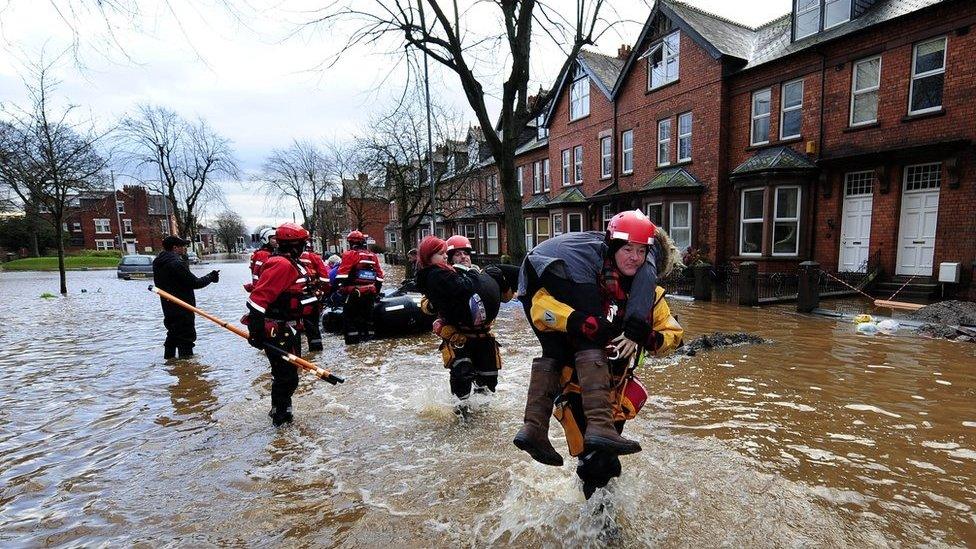Kendal 'hydro hedges' hope to halt homes flooding
- Published
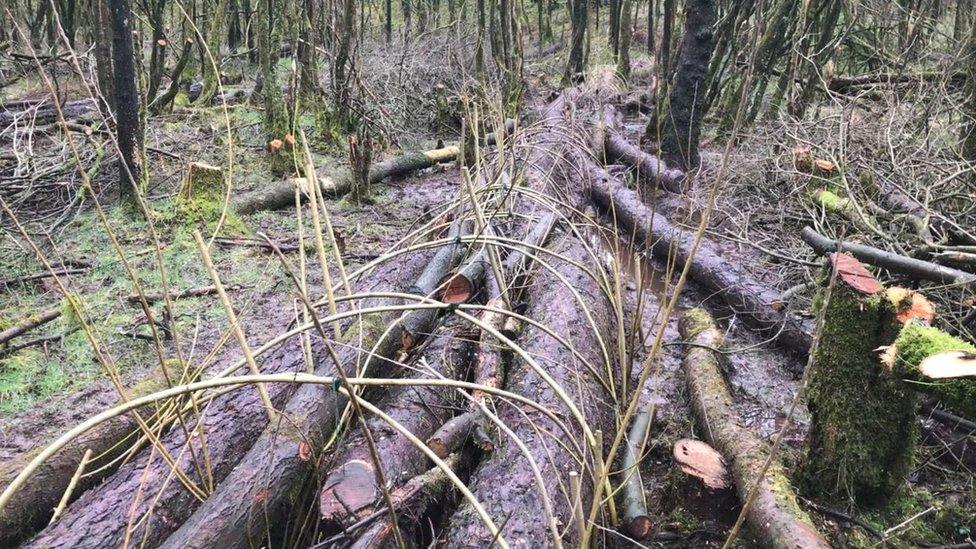
Willow branches are "woven" around a base of logs
Flood defences made from living willow trees are being built to protect hundreds of properties in Cumbria.
The Sandylands area of Kendal has been flooded numerous times and was inundated during Storm Desmond in 2015.
"Hydro hedges" are being built on farmland above the housing estate in a bid to restrict the flow of storm water over the ground.
They are made of logs intertwined with willow branches pushed in around them which will root and form a living dam.
Wood dams have been used before in the UK, but this is thought to be the first to incorporate living trees rather than timber barricades.
Willow thrives in wet conditions and, as well as holding the dams together, it will draw in water.
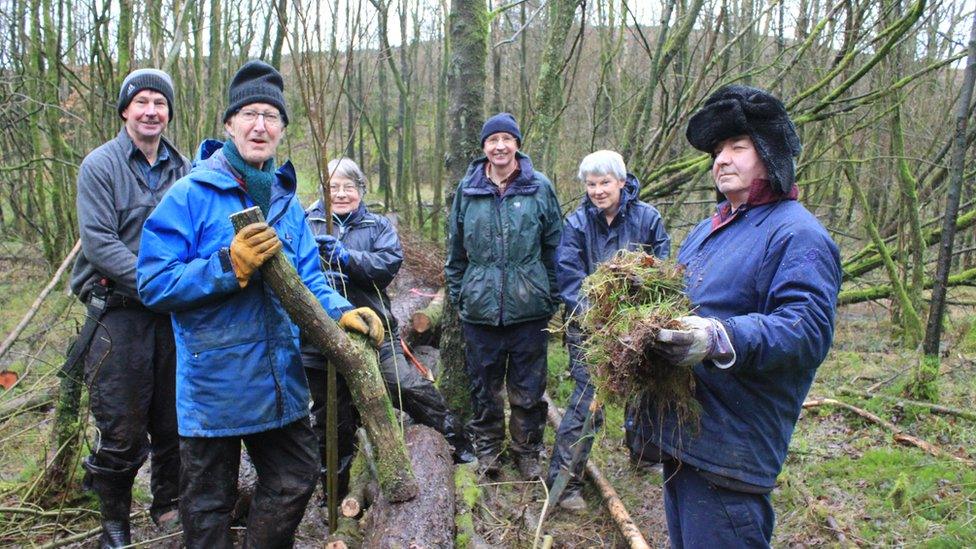
Volunteers have been involved in the construction of the dams
The work is being funded by the Environment Agency and overseen by Cumbria Wildlife Trust.
Peter Bullard, from the trust, said: "The structures will vary in length from 50 to 100 metres and be no more than one metre high.
"Branches from willow and sallow trees pushed into the ground on both sides of the logs which will quickly root in the wet soil on their own, creating posts to provide stability.
"Flexible willow and sallow branches are then woven between these posts in a manner similar to basket making."
Stephen Lockwood from Kendal Conservation Volunteers who have been helping to construct the dams, said: "It's wonderful to be learning skills on the job as we've never done anything like this before.
"We go home covered in mud but its great fun."
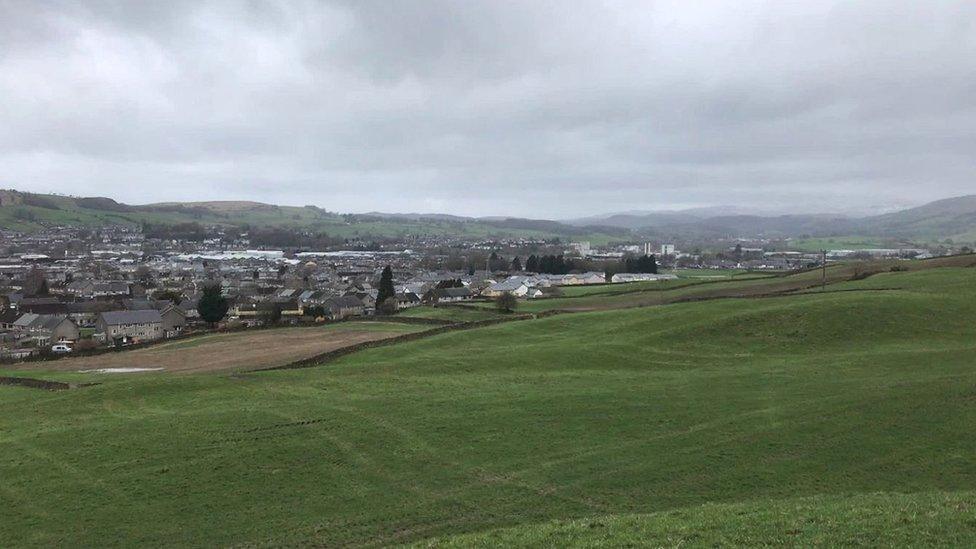
The dams aim to prevent storm water running down the hill and flooding homes in Sandylands

Follow BBC North East & Cumbria on Twitter, external, Facebook, external and Instagram, external. Send your story ideas to northeastandcumbria@bbc.co.uk, external.
- Published18 June 2016

- Published14 April 2016
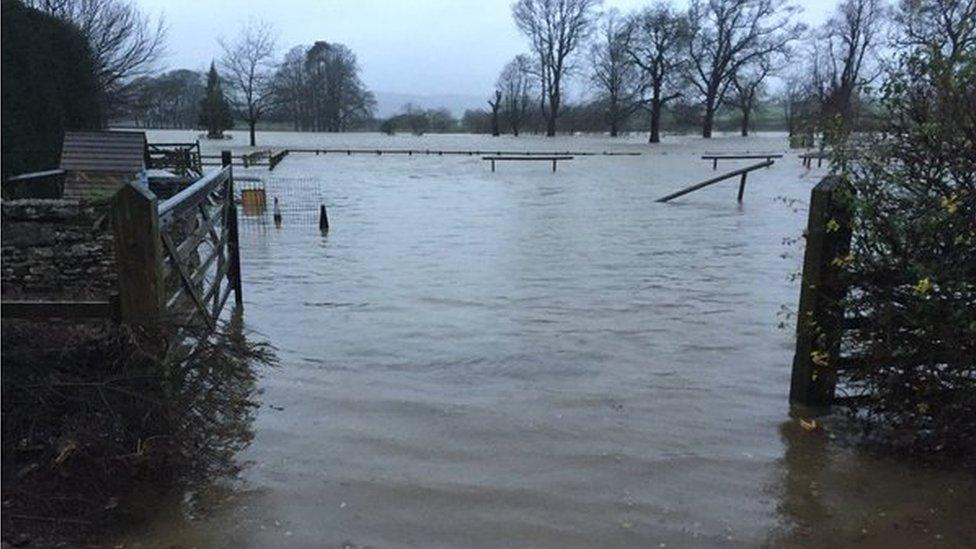
- Published7 December 2015
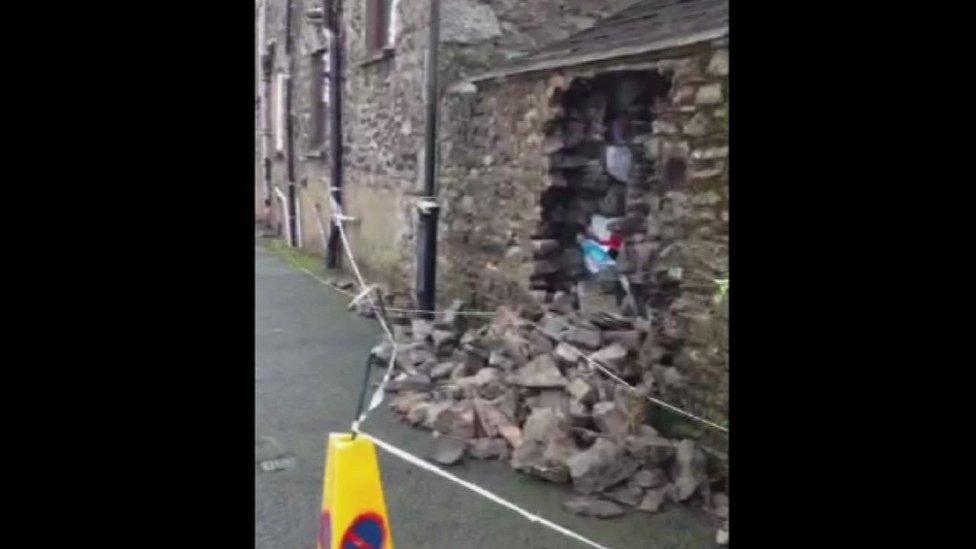
- Published7 December 2015
